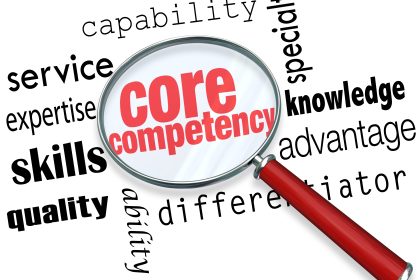
In the dynamic realm of leadership, the development of coaching skills stands as a cornerstone for success. We’ve gathered insights from twelve esteemed professionals, including Senior Professors and HR managers, to delve into why these skills are critical. From transforming teams to motivating employees with coaching techniques, explore the compelling reasons these leaders believe coaching is essential.
- Transform Teams with Coaching Skills
- Empower Teams Amidst Uncertainty
- Effective Leaders Embrace Coaching
- Coaching Cultivates High-Performing Teams
- Nonprofit Leaders Benefit from Coaching
- Coaching Addresses Problems at the Root
- Build Emotional Resilience Through Coaching
- Ask Non-Linear Questions for Innovation
- Coaching Skills Essential in High-Stakes Fields
- Coaching Multiplies Leadership Force
- Coaching Skills Drive Workforce Evolution
- Motivate Employees with Coaching Techniques
Transform Teams with Coaching Skills
A leader who hones coaching skills transforms their ability to guide and develop their team. The core of leadership isn’t just about giving orders; it’s about empowering others to reach their potential. When a leader coaches, they don’t just solve problems; they teach their team how to solve problems on their own. This approach builds confidence, fosters independence, and creates a culture of continuous improvement.
Coaching enables leaders to better understand their team members’ strengths, weaknesses, and motivations. This insight allows for more effective delegation, support, and development, ensuring that each person is in a position where they can thrive.
Coaching isn’t just a nice-to-have skill for leaders; it’s a critical component of leading effectively. It bridges the gap between managing tasks and inspiring people, ensuring that a leader not only directs but also nurtures a team that is capable, confident, and committed to success.
Mark Smith, Senior Professor, University of Advancing Technology
Empower Teams Amidst Uncertainty
Coaching is a powerful tool to empower your team, particularly during times of uncertainty and change. Deploying a coaching leadership style allows your team members to truly focus on their area of oversight, while you ask the right questions and remove roadblocks that get in their way.
As a leader, you must trust that your employees know their situation and work better than you, as they’re the ones living it 40-plus hours per week. Rather than telling your team what to do in a given situation, coaching is about empowering your employees with the skills and tools they need to make strategic and thoughtful decisions.
If you want to get out of the weeds and make a true impact, coaching is a skill you want to master. It benefits your employees and your organization.
Dr. Kyle Elliott, Founder & Tech Career Coach, CaffeinatedKyle.com
Effective Leaders Embrace Coaching
The simple answer: effective leaders are coaches. The biggest mistake I see is leaders getting stuck in the tasks of the people and processes they manage so much that they lose sight of the bigger picture until it gets messy, and they have to clean it all up. At that point, it takes a lot of unraveling to get things right and put everything where it belongs.
I coach soccer. I spend my time at practices teaching the skills for the kids to perform in the game. When it’s game time, I’m on the sidelines encouraging them and reminding them what needs to be done. I’m not in the game performing alongside them. That would be extremely ineffective.
Have 1:1s and team meetings. These are your practices where you can set goals and ways to measure performance, so people know where they are at while they’re “in the game.” Then, continuously monitor at a distance. Provide the encouragement, training, and guidance needed to be successful as a team.
Scott Johnson, HR Manager
Coaching Cultivates High-Performing Teams
As a sales leadership expert with over 30 years of experience, I firmly believe that developing coaching skills is one of the most critical elements for any leader’s success. Effective coaching is not just about improving individual performance—it’s about cultivating a high-performing team, fostering a culture of continuous development, and ultimately driving organizational results.
Firstly, coaching empowers people. When leaders take the time to coach, they are investing in their team members’ growth. This doesn’t just improve skills; it enhances confidence, engagement, and accountability. Employees need feedback, direction, and support to realize their full potential. Through coaching, leaders can identify strengths, address weaknesses, and help their teams move from good to great. When leaders develop strong coaching skills, they can unlock that potential, leading to better performance, higher retention rates, and improved job satisfaction.
Secondly, coaching is about scalability. The best leaders are not just focused on achieving short-term goals—they’re focused on building a sustainable and scalable team. By coaching their team effectively, leaders create an environment where team members can handle increasing responsibility and make decisions independently. This fosters a culture of self-reliance, allowing leaders to scale their efforts and focus on strategic initiatives.
Moreover, agility and adaptability are crucial in today’s fast-changing business landscape. Coaching enables leaders to address challenges and changes in real time. By regularly coaching their team, leaders can adapt to new market conditions, pivot quickly when necessary, and ensure their team stays ahead of the curve.
In essence, great leaders are great coaches because they understand that their success is not measured by their achievements but by their team’s success. By developing coaching skills, leaders create an environment where everyone wins—employees grow, performance improves, and the organization thrives.
Steven Rosen, Executive Coach, STAR Results
Nonprofit Leaders Benefit from Coaching
As a former nonprofit executive, I believe coaching skills are essential for today’s nonprofit leaders, as they foster individual growth, empowerment, and greater commitment among staff and volunteers. By embracing a coaching mindset, leaders can guide individuals toward realizing their full potential, enhancing performance, and deepening their ownership with the organization’s mission.
This approach cultivates an environment of trust and open communication, where team members feel valued and motivated to contribute their best. Ultimately, coaching not only improves organizational effectiveness but also drives sustainable results and ensures a lasting impact on the communities you serve.
Edmund Settle, Executive Coach, Edmund Settle Executive Coaching
Coaching Addresses Problems at the Root
Coaching gets to the root of a problem. As a coach, you are actively involved. You give feedback to improve the other person’s skills or knowledge. You work out problems at a granular level so that the problem is addressed, and everyone can move forward. Coaching is based on the assumption that people are independent, skilled, and capable, and you are simply supporting them and standing beside them in their development. This is what an effective leader should do, and it is why leaders should develop coaching skills.
Oleksiy Torokhtiy, Founder, Torokhtiy Weightlifting
Build Emotional Resilience Through Coaching
A leader with coaching skills can help their teams build emotional resilience, which is crucial in today’s workplace filled with uncertainty, rapid changes, and—let’s face it—stress. Employees need more than just a boss who manages tasks—they need someone who will guide them through the emotional ups and downs that come with the job.
Thanks to coaching, leaders can create an environment where employees feel safe discussing their struggles and showing vulnerability without fear of judgment. By engaging in reflective conversations and helping employees reframe setbacks as opportunities for growth, leaders teach them how to bounce back from challenges stronger than before.
Let me give an example. During times of stress or failure, a coaching leader may ask, “What did you learn from this challenge that you can apply moving forward?” or “How can we turn this situation into a valuable lesson for the future?” That way, a leader’s involvement goes beyond solely solving problems, as it equips people with the emotional tools they need to thrive long-term.
Agata Szczepanek, Career Expert & Community Manager, LiveCareer
Ask Non-Linear Questions for Innovation
I believe that, if there was one thing a leader needed to develop to become a good coach, it was the ability to ask a “non-linear” question. Instead of asking direct, goal-oriented questions like “What’s your plan?” or “What are the next steps?” non-linear questions are meant to get the employee to think in new ways and see things from different angles.
For example, as a professional coach, I might ask, “What would you do if the usual resources weren’t available?” or “What would it look like if you could approach this in a way that is completely different from the norm?” These kinds of questions make you think outside the box, which often leads to insights that you wouldn’t get from traditional coaching conversations.
This is actually very useful, and I’ve seen how a non-linear mindset helped employees find more innovative solutions than they sometimes arrived at in more conventional ways. This requires people to think in an alternative way to their usual thinking routines, but not necessarily leading them in a particular direction that you have set out for them.
Adam Klein, Certified Integral Coach® and Managing Director, New Ventures West
Coaching Skills Essential in High-Stakes Fields
First, effective coaching fosters the growth and development of team members, which is essential in high-stakes fields like law and public safety where continuous learning and adaptability are key. By guiding team members through complex challenges and offering constructive feedback, leaders can enhance their team’s skills, boost confidence, and improve overall performance.
Second, coaching skills promote a positive and supportive work environment. When leaders take the time to coach rather than merely manage, they build trust and respect within the team. This approach helps to address issues proactively, resolve conflicts, and maintain high morale, which is vital in high-pressure situations.
Finally, coaching helps in succession planning. By developing the next generation of leaders within the organization, you ensure that there is a strong pipeline of capable individuals ready to step into critical roles as needed. This not only strengthens the organization but also ensures continuity and stability in its operations.
Joshua Schirard, Director, Byrna
Coaching Multiplies Leadership Force
The benefits are aplenty. First, leaders without well-developed coaching skills tend to work too hard, answering too many questions their employees should be answering themselves. This can lead to burnout and the feeling that they’re carrying the weight of the world on their shoulders.
When we train coaches, we tell them that coaching is one of the most rewarding and most force-multiplying professions. It does not mean that coaching is not hard. What it means is that it takes a lot of work to let others do their discovery, to apply a coaching touch to guiding them, rather than directing them.
While the burden shifts from doing all the work to doing the hard work of soliciting others’ thoughts, opinions, and solutions, the weight of being the smartest person in the room is lifted, and the right and better decisions start to emerge from the collective wisdom with less work on the part of the leader.
Second, these leaders often miss a great opportunity to develop their employees. Coaching isn’t just about soliciting employee opinions or asking questions instead of giving answers. It’s about adding to a shared pool of understanding, rather than simply stating the truth. Coaching is also a powerful tool for building rapport, signaling trust, respect, and appreciation between the leader and their employees.
Third, a leader who lacks coaching skills is most likely to become a bottleneck for all the multitude of decisions they need to be making. And if this leader is tasked with driving a strategic initiative, most likely they will not have the time of day to focus on what matters – on the strategy, while they are buried in tactics and don’t have a minute to come up for some air.
Lastly, coaching is one of the most powerful—if not the most powerful—ways to develop your employees and ultimately prepare someone to succeed you. I strongly believe that the top priority for any leader stepping into a new role, once they understand the current work, should be to identify and develop their own replacement. Without this mindset, leaders can become stuck. Coaching and mentoring are key to growing future leaders, not only by uncovering potential but by helping that potential flourish into something greater.
Cherie Silas, CEO and Managing Partner, Tandem Coaching
Coaching Skills Drive Workforce Evolution
To thrive in today’s evolving workforce, leaders must develop strong coaching skills. Employees no longer want to be managed; they seek to be heard, have their ideas implemented, and receive recognition for their unique contributions. When they are merely executing their manager’s vision, that’s not possible.
A client recently shared her experience after beginning to learn coaching skills. Reflecting on her past, she said, “It’s such a turnoff when leaders or coaches give me advice. I rarely follow it because it doesn’t align with my values, strengths, or situation.”
The real challenge in leadership development is helping leaders understand that coaching is fundamentally different from performance management, advising, teaching, or giving feedback. Effective coaching requires curiosity—genuinely exploring an employee’s thoughts, feelings, and beliefs—and courage, trusting them to execute their own ideas. Whether they succeed or learn from setbacks, employees gain the most when they take ownership of their growth.
Leaders who master coaching will foster more engaged teams, reduce turnover, and drive better business results. It’s one of the smartest investments you can make in your leadership success.
Shaina Lane, Leadership and Career Coach, Premier Professional Coaching
Motivate Employees with Coaching Techniques
Coaching skills are excellent drivers of motivation and engagement for employees. When leaders use coaching techniques, they encourage team members to explore their strengths, make independent decisions, and think critically. This sense of autonomy leads to higher levels of job satisfaction, which naturally boosts engagement.
Engaged employees are more emotionally invested in their work and the organization’s success. By empowering them, leaders show trust in their abilities and provide opportunities for growth. This recognition of their potential fosters a deeper connection to the organization, as employees feel their contributions are valued and that they are an integral part of the team’s success.
Remone Robinson, Chief Human Resources Officer





